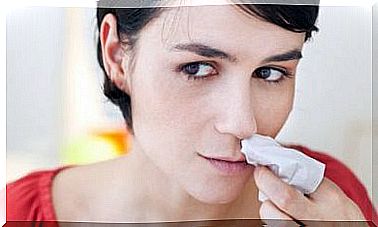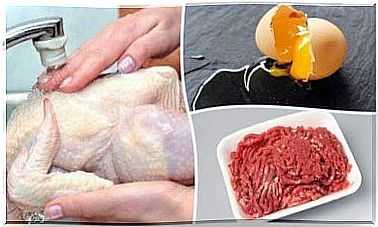Treatments For Dysphagia Of The Esophagus And Pharynx

Treatments for dysphagia depend on the type of patient the patient is suffering from. In this article you will learn all about the different types, as well as how they can be treated.
Most cases require strict medical therapies and even surgery. However, a doctor must make an accurate diagnosis before deciding on a treatment. Some dysphagias are temporary, while others represent a serious, even oncological, problem.
Dysphagia and the different types
Dysphagia consists of having difficulty swallowing. In other words, the patient feels pain when something passes through the throat.
If the problem is the throat itself, it could be an infectious or inflammatory odynophagy. Dysphagia is when a person has difficulty swallowing food or saliva from the oral cavity to the stomach.
As you can see, several organs play a role in this disorder, making it more complex. In addition, it can be difficult to swallow liquids or solids. These small symptoms largely control the diagnosis.
These are the types of clinical presentation:
- Swallowed. This type of dysphagia consists of the classic difficulty of swallowing liquids and foods at high levels. It is located in the throat. The most common causes of this type are neurological. Stroke patients suffer from it, which makes it difficult for them to eat. This can lead to other complications, such as dehydration and weight loss.
- Esophagus. As the name suggests, this type of dysphagia resides in the esophagus, lower than the previous one. It occurs with both liquids and solids. The esophagus is a hollow and tubular organ that favors obstruction in neoplastic processes. The most serious cause, of course, is cancer.

Treatments for dysphagia in the pharynx
First, to treat pharyngeal dysphagia, the doctor must first diagnose the condition. The first causes they look for are those that can be corrected with habit changes.
One of the first things medical professionals suggest is changes in diet, such as changing the texture and volume of food. The goal is to help the patient to be able to swallow and digest food.
Attitude is a crucial factor in patients suffering from neurological disorders due to primary pathologies or after-effects. For many, just changing their neck position when they eat is enough to correct dysphagia.
Rehabilitation processes are also used for this important daily activity. We learn to eat when we are young. Patients who have a stroke, for example, must learn to do it again. Both nutritionists and physiotherapists teach patients to eat.
In complex cases, doctors may prescribe nutritional support or adapters. If the patient does not eat despite the changes, or loses weight and becomes dehydrated, the doctor will prescribe one of these devices.
- The most common are nasogastric tubes
- Although the surgical variant is less common, it is still an option when hunger is a risk
Treatments for esophageal dysphagia
Esophageal cancer is not the only cause of this type of dysphagia. Thus, proper treatment depends on proper diagnosis. The patient may be suffering from an inflammation of the esophagus. They may also have achalasia, which is when the lower esophageal muscle (sphincter) does not relax properly to allow food to enter the stomach.
If a doctor chooses the surgical method, they are likely to resort to endoscopy. To do this, they insert a flexible fiber tube that goes through the upper part of the gastrointestinal tract and looks for obstacles. The device has a camera and tools that the surgeon can work with. If they find a foreign body, they must remove it. In addition, it also allows surgeons to take biopsies.
The endoscope can also perform extensions to allow elements inside the esophagus to move in patients with severe obstructions due to a reduction in the esophagus.
The following are some of the drugs that can solve the problem without surgery:
- Calcium channel blockers. These drugs claim to regulate smooth muscle contractions in the esophagus. Their effectiveness is disputed by clinical trials.
- Proton pump inhibitors. Used more as excipients. They reduce the production of hydrochloric acid in the stomach and thus reduce the reflux. This causes an irritation in the esophagus.
- Botulinum toxin. Experts have experimented with injecting this drug a few times, but the results have not been entirely promising. First, the drug must be added every six months to maintain the effect. The patients who experienced benefits were also operated on.

Treatments for dysphagia are complicated
As you have seen in this article, it is not easy for doctors to deal with and treat dysphagia. Serious underlying causes, such as cancer, require an accurate diagnosis that leaves nothing to chance.
For this reason, it is important that patients consult their doctor as soon as possible and follow their indications. This disorder can lead to malnutrition and dehydration.









